How Much is a Carport
Carports offer a simple and affordable way to protect your vehicles from the elements without the higher cost and complexity of building a garage. Whether you’re shielding your car from sun and snow or creating a shaded space for outdoor storage, a carport provides versatile coverage. But one of the most common questions for homeowners considering this structure is: how much is a carport? The answer varies based on size, materials, design, and installation method. This guide explores the different factors that affect pricing so you can budget confidently for your project.
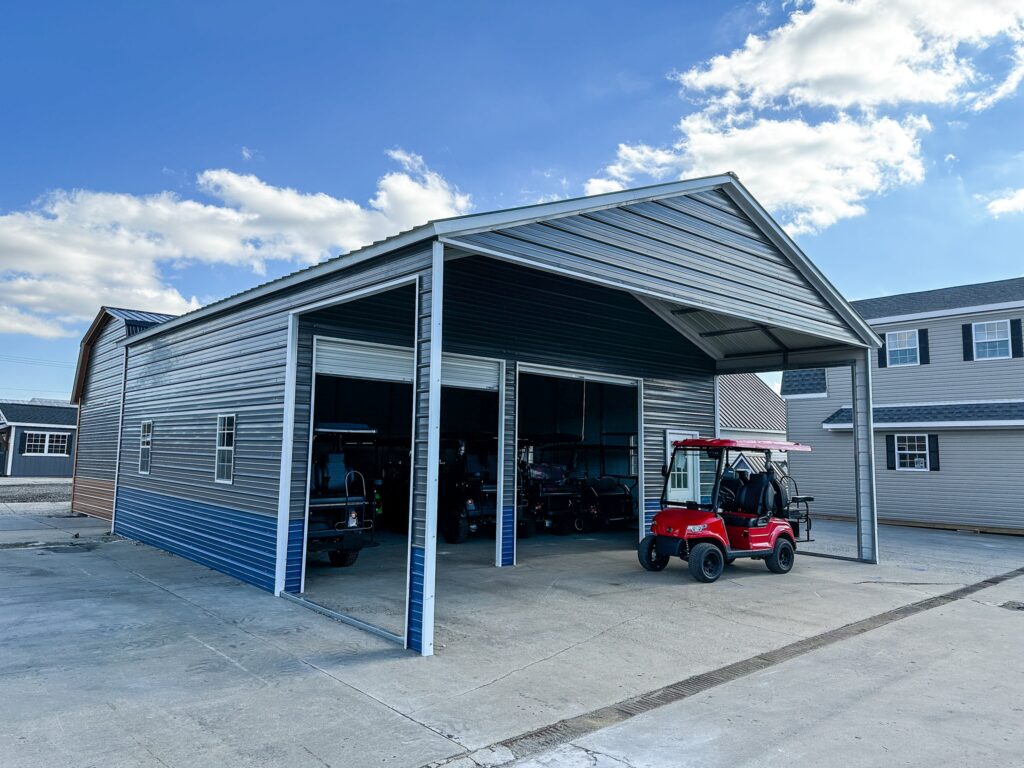
Understanding the Types of Carports
Before diving into cost, it’s important to understand the different types of carports available. Carports generally fall into two main categories: freestanding and attached. Freestanding ones can be installed anywhere on your property, while attached ones are connected to an existing structure like your home or garage.
They can also vary in structure and material:
- Metal Carports: Made from steel or aluminum, these are durable, low-maintenance, and often more affordable.
- Wood Carports: Offer a more natural aesthetic but generally cost more and require more upkeep.
- Canvas or Fabric Carports: Temporary structures with metal frames and fabric tops. These are usually the most affordable but less durable.
- Custom-Built Carports: Tailored to match your home’s design or to accommodate larger vehicles, with pricing reflecting the level of customization.
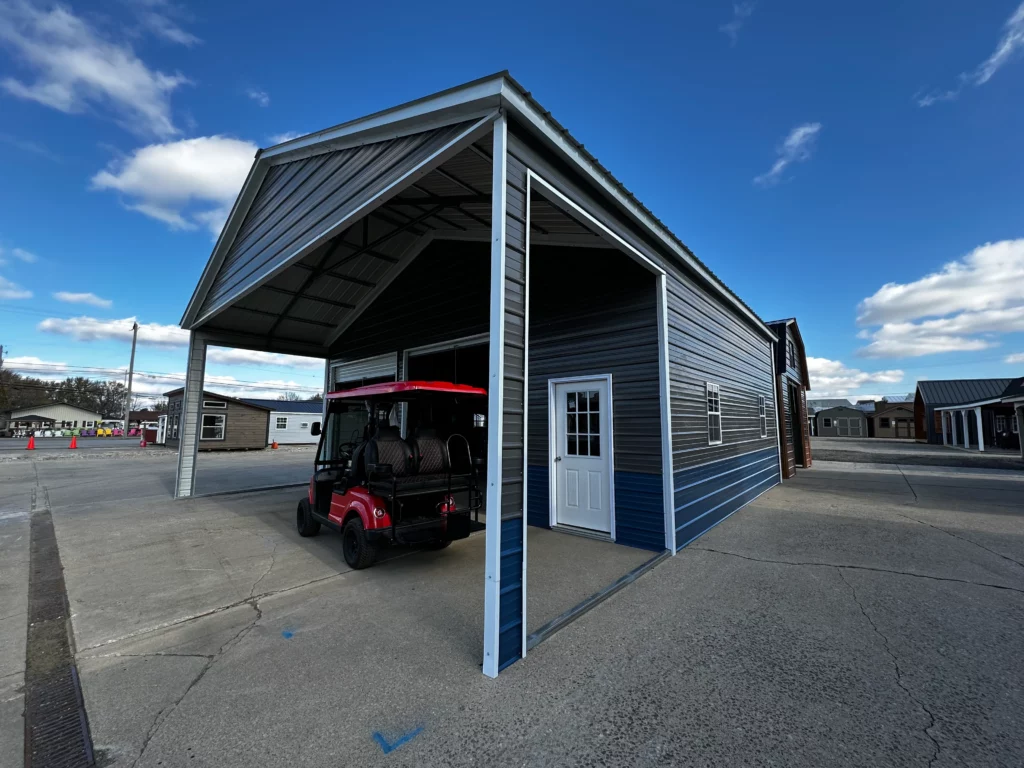
Size and Vehicle Capacity
One of the biggest factors influencing cost is the size of the carport. Standard sizes include single ones (12’ x 20’), double ones (20’ x 20’ or 24’ x 24’), and RV ones (up to 18’ tall and 40’ long).
As a general guide:
- Single Carport: $1,000 – $4,000
- Double Carport: $2,000 – $6,000
- RV or Oversized Carport: $4,000 – $12,000 or more
Larger or custom-sized carports will naturally cost more due to additional materials and structural support.
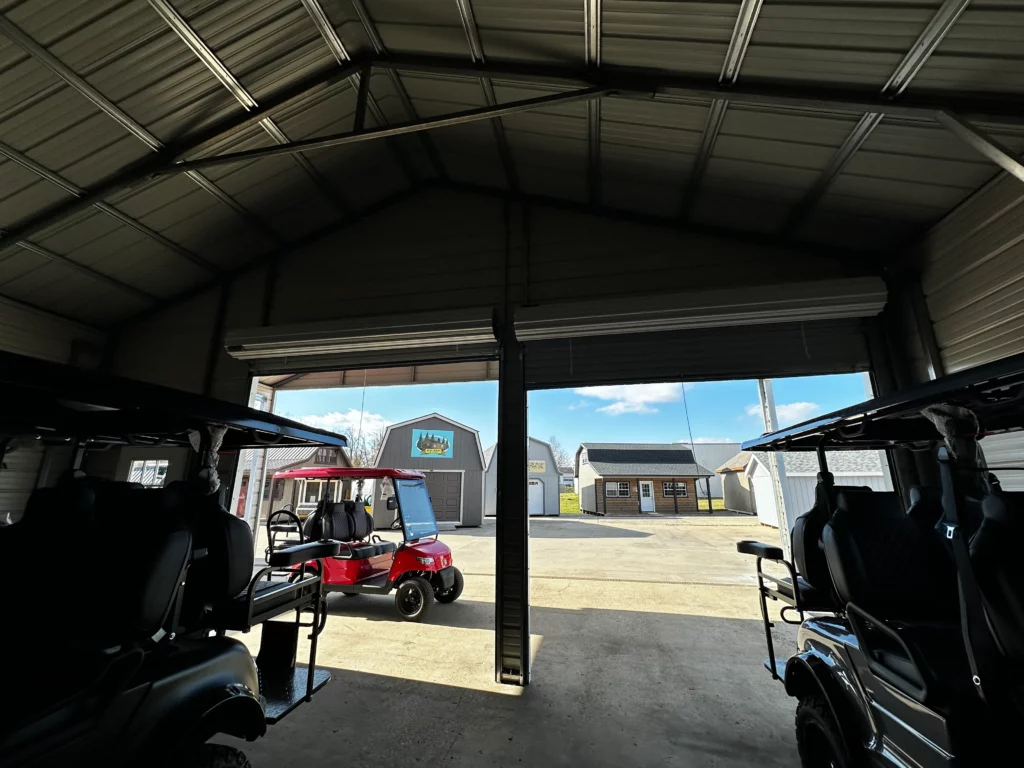
Materials and Construction Costs
The material used in the frame and roof will significantly affect the price:
- Aluminum Carports: Lightweight and rust-resistant. Typically range from $1,200 to $5,000 depending on size and configuration.
- Steel Carports: Stronger and more durable than aluminum, often used in areas with heavy snow. Prices range from $2,000 to $10,000.
- Wood Carports: Aesthetic and sturdy but cost more, ranging from $3,000 to $12,000.
- Fabric Carports: Ideal for temporary use. Can cost as little as $200 to $1,000.
Consider long-term durability and maintenance when evaluating material options. Metal is often favored for its low upkeep, while wood appeals to those wanting a more traditional look.
Installation Method and Labor
The choice between a DIY installation and professional construction will impact your total cost.
- DIY Kits: Pre-fabricated carport kits are available online or at home improvement stores. Prices range from $900 to $5,000. DIY installation can save on labor but requires tools and basic construction knowledge.
- Professional Installation: Hiring a contractor or working with a carport company may cost an additional $500 to $3,000 depending on the complexity of the project. However, professionals ensure proper anchoring, compliance with local codes, and quality results.
For more complex ones —especially those with electrical components, lighting, or integrated storage—professional installation is highly recommended.

Additional Features and Customizations
Optional upgrades and features can significantly impact the cost of a carport:
- Side panels or enclosures for added protection and security
- Gutters and downspouts for proper drainage
- Decorative trims or columns to match your home
- Concrete slab foundation or gravel base
- Built-in lighting or outlets for added functionality
Each of these enhancements adds cost, but also increases usability and curb appeal. A basic carport may meet your needs, but customized options provide long-term value and satisfaction.
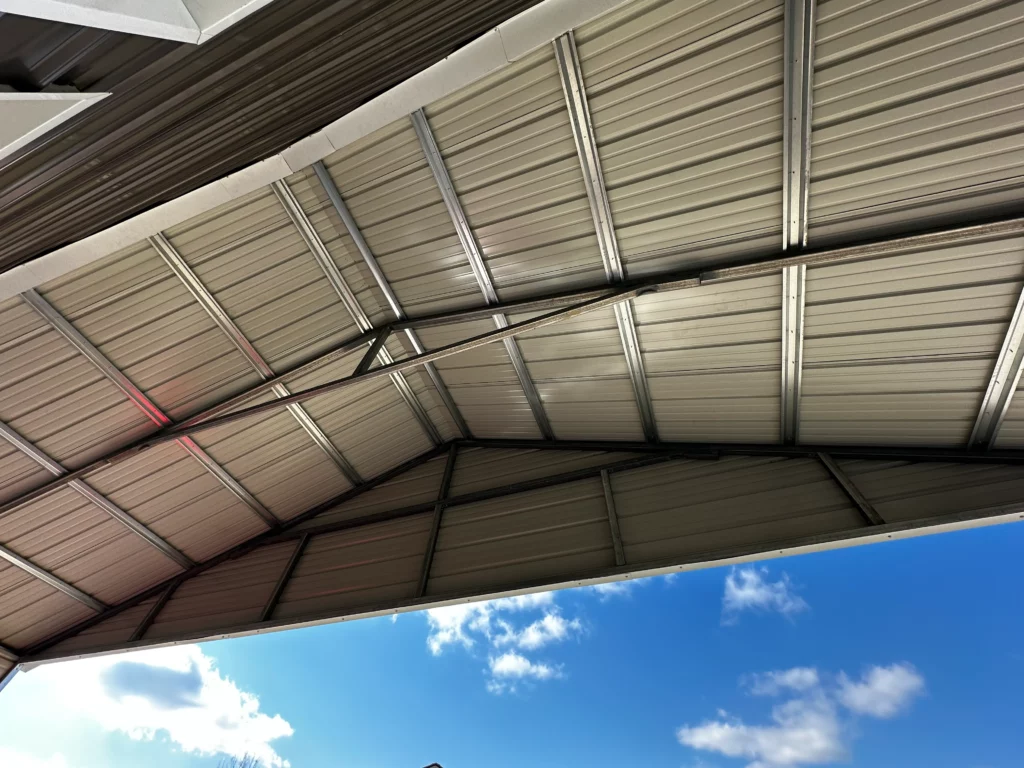
Permit and Site Preparation Costs
In many areas, building one requires a permit. Permit fees vary but can range from $50 to $500 or more depending on your local jurisdiction and the size of the structure. It’s important to check with your city or county’s building department before starting the project.
Site preparation may also be necessary. This can include grading, leveling, and installing a base. A gravel pad may cost $500 to $1,000, while a concrete slab could run $1,500 to $4,000 depending on size and thickness.
These hidden costs should be factored into your overall budget to avoid surprises.
Longevity and Maintenance
When asking how much is a carport, consider not only the upfront cost but also the long-term investment. Metal carports typically last 20 to 30 years with minimal upkeep. Wooden carports may require periodic painting, sealing, or repairs due to exposure to moisture and pests.
Fabric ones usually last 3 to 10 years depending on material quality and local weather. Regular maintenance—such as clearing debris, checking fasteners, and inspecting for rust or damage—will help maximize lifespan regardless of material.
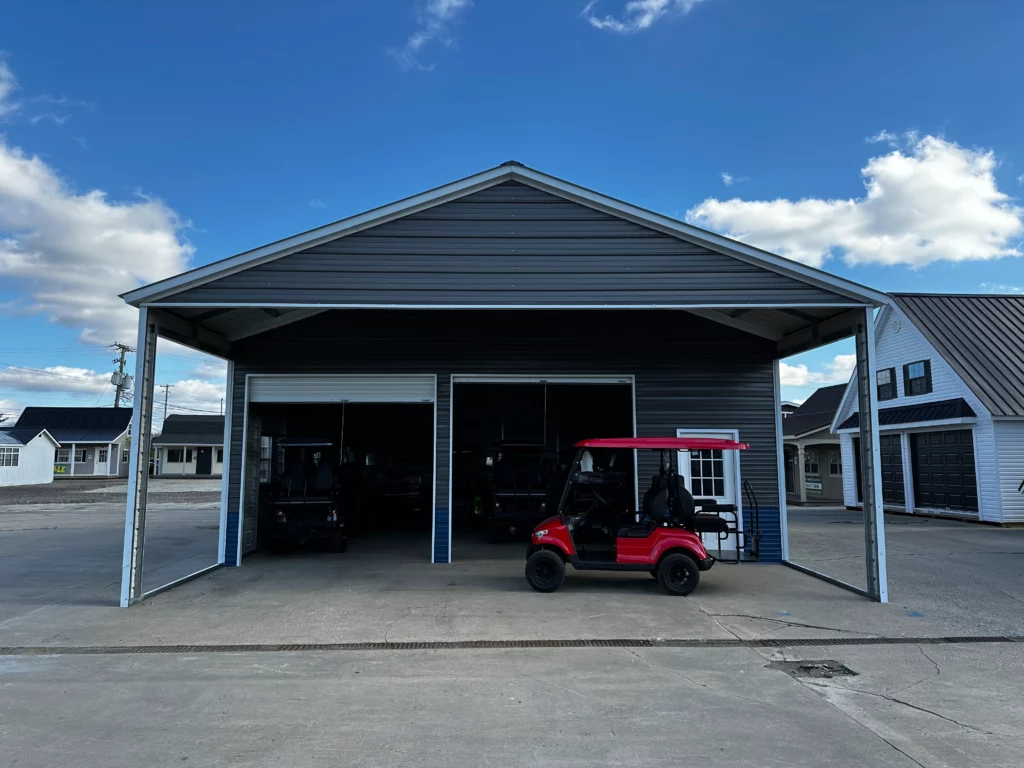
Buying from Reputable Dealers
Purchasing from a trusted vendor ensures you’re getting high-quality materials, proper warranties, and optional installation services. Companies like Hartville Outdoor Products offer a wide selection of carports and metal structures, with professional guidance and customer support throughout the buying and building process.
We provide delivery and installation across Ohio and surrounding areas, and our buildings are available in various sizes, finishes, and customizable features. Buying from a reputable local company often includes site evaluations and help with permitting.
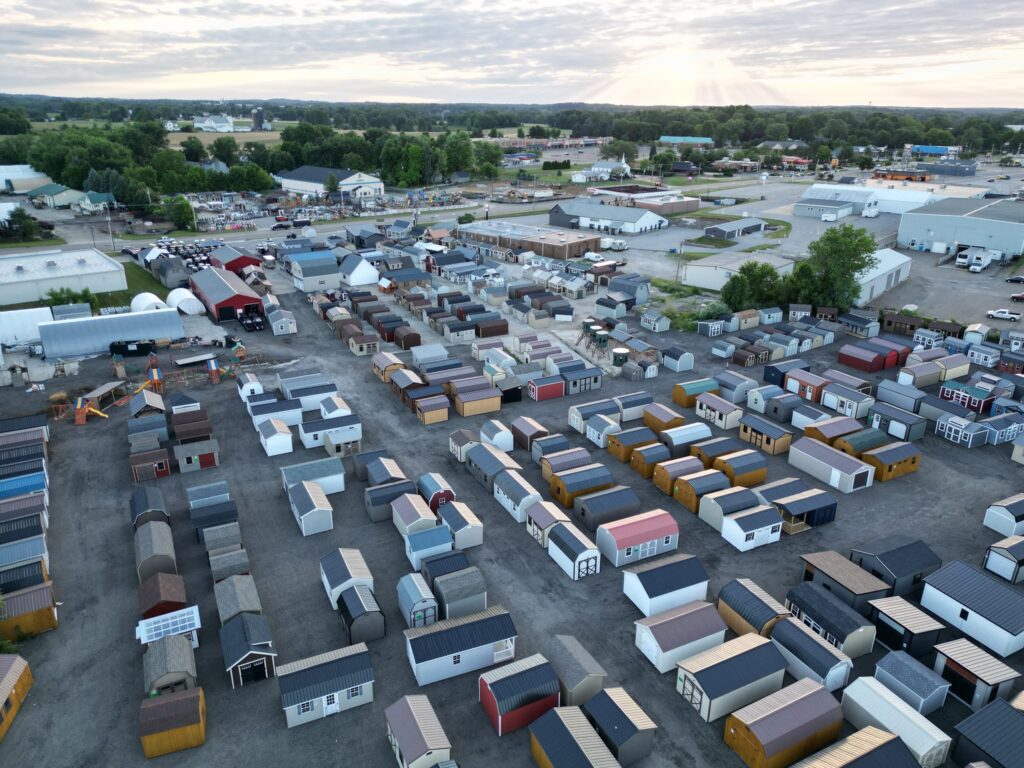
Conclusion
The cost of a carport depends on several key factors including size, material, installation method, and optional upgrades. While a basic fabric carport might only set you back a few hundred dollars, a large, custom-built metal or wood structure could cost upwards of $10,000 or more. By understanding your needs, exploring material options, and factoring in installation and permitting costs, you can choose the right one for your property and budget. Whether you’re protecting your vehicle or creating extra covered space, investing in a quality carport can deliver both practicality and peace of mind.
